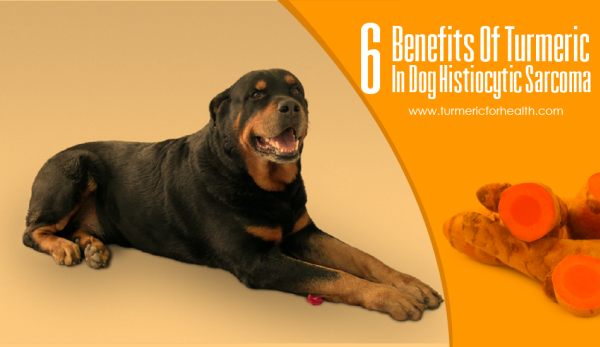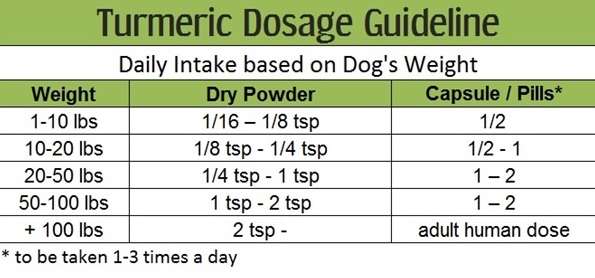Prevalence of canine diseases is increasing and shifting towards rare forms of ailments. I have heard a couple of pet owners say that their pet has ‘histio’, could turmeric possibly help?
‘Histio’ is a very broad term that perhaps includes a group of histiocytic diseases. Histiocytosis is unhealthy proliferation or growth of histiocytes.
Histiocytes are the type of cells that differentiate from particular stem cells into macrophages and dendritic cells- both of these are immune cells which function independently and fight toxins and infections.
These cells are located in different parts of the body and hence inflammation or cancer in these cells can be hard to treat. It can be considered as dysregulation of immune function.
Overall histiocytosis consists of inflammatory disorders (cutaneous histiocytosis), benign tumors (histiocytic cytoma) or even malignancy.
This article is dedicated to Canine Malignant Histiocytosis or Canine Histiocytic Sarcoma Complex (the cancerous form of ‘histio’ that spreads throughout the body) and how turmeric can help in it.
Table of Contents
- What is a histiocytic sarcoma complex?
- What is the treatment offered for histiocytic sarcoma?
- How can turmeric help in Histiocytic sarcoma complex?
- 1. Turmeric can kill malignant cells of histiocytic sarcoma
- 2. Curcumin has a multi-modal anti-cancer effect
- 3. It can prevent metastases or spread of cancer
- 4. It can protect from side effects of chemo/radiotherapy
- 5. It enhances the effect of chemotherapy and radiotherapy
- 6. Turmeric has a protective effect on multiple systems
- Dosage
- Precautions
- Conclusion
What is a histiocytic sarcoma complex?
The histiocytic sarcoma complex in dogs is a malignant disease characterised by the spread of cancerous histiocytes. The term ‘sarcoma’ means cancer of the connective tissue (tissues that makeup muscle, skin, etc).
It occurs mostly in Bernese mountain dogs, rottweilers, flat-coated retrievers, and golden retrievers.
Localized histiocytic sarcoma originates for a single tissue site or organ with multiple lesions. Disseminated histiocytic sarcoma is when this cancer spreads to other parts of the body by the lymph (a colorless body fluid that carries immune cells) or blood vessels.
This is the metastatic form of the histiocytic sarcoma.
Localized histiocytic sarcoma originates mostly at the spleen, in the joint space, skin and its layers, lymph node, lungs, bone marrow etc.
It is generally observed as a soft tissue swelling or mass and lameness in the affected limb.
It can further spread to multiple systems and affect liver, lungs and even central nervous system and develop into disseminated histiocytic sarcoma.
Histiocytic sarcoma presents with non-specific symptoms but the major ones include :
- Loss of appetite and weight loss
- Lethargy
- Skin lesions with itching
- Vomiting and diarrhea
Depending on the system affected, respective symptoms appear eg: if the brain is affected then seizures and paralysis could develop, if the fluid in the joints is affected lameness is observed if lungs are affected cough and dyspnea could occur.
What is the treatment offered for histiocytic sarcoma?
Histiocytic sarcoma is rare cancer and since it affects the immune system, it can rapidly spread throughout the body.
Localized histiocytic sarcoma can be treated by surgery or amputation of the affected limb. Radiotherapy is given in case part of the tumor cannot be excised.
Chemotherapeutic drugs lomustine (CCNU), nimustine (ACNU), doxorubicin are used in combination.
Common side effects with these medications include vomiting, diarrhea, lowered blood cell counts and immune system failure.
Supportive therapy is provided by administering steroids (prednisone) and antibiotics (cefalixin, quinolone, amoxicillin, neomycin). Clinical outcomes of histiocytic sarcoma complex are poor.
How can turmeric help in Histiocytic sarcoma complex?
Herein we are going through various properties of turmeric that help in histiocytic sarcoma complex and can serve as a complementary treatment to reduce the burden of the disease. Curcumin is the bioactive ingredient of turmeric that possesses excellent pharmacological properties.
1. Turmeric can kill malignant cells of histiocytic sarcoma

DNA methylation is an important process which influences the genetic signature or identity of the cells during growth and multiplication.
In cancerous cells this process is hampered.
Thus researchers are searching for molecules which could rectify this process and reverse cancer.
Curcumin is one such natural epigenetic agent- it interacts with enzymes involved in DNA formation and can regulate gene expression in cancerous cells.
Thereby it can prevent growth and terminate cancerous cells, after all cancer cells are mutations of normal cells.
In this cell culture study , canine/dog histiocytic sarcoma cells were treated with different concentrations of curcumin and curcumin served as a cytotoxic agent (toxic to cells in this case cancer cells).
Researchers concluded that curcumin can be investigated as a viable epigenetic agent to fight cancer in pets.
Ferritin is a protein that binds to iron in the body and stores it for the body to use later.
A study demonstrated that dogs suffering from histiocytic sarcoma have high ferritin levels. High ferritin levels can contribute to tumor progression and drug resistance in cancer.
Chemopreventive and chemotherapeutic drugs are known to act against ferritin, reduce iron supply to cancer cells and thereby impair their viability.
Curcumin is also proven to act in this manner and its dose dependent iron chelating (binding to iron) activity can be helpful in cancer treatment. None of these studies reported any adverse effects of curcumin.
Apoptosis or cell death is a preferred mechanism in cancer cells and there are a number of proteins that regulate this process.
Survivin is one such protein and a study suggests that treatments targeting this protein can help in treating histiocytic sarcoma.
Survivin prevents apoptosis and therefore you would need something that inhibits its action. Interestingly curcumin does exactly that and kills cancer cells and also increases their sensitivity to chemotherapy.
What does this mean?
Cell culture studies show that curcumin can alter the genetic expression and kill canine histiocytic sarcoma cells. Additionally studies also show that curcumin can influence other biochemical targets which serve as tumor markers in histiocytic sarcoma and promote progression of the disease.
2. Curcumin has a multi-modal anti-cancer effect
Curcumin’s potent anti-cancer effect has been proven clinically and it is recommended to take curcumin/turmeric in combination with conventional cancer treatment.
Curcumin has anti-tumor (prevents tumor formation), anti-proliferative (prevents multiplication of cancer cells), chemopreventive (prevents initiation or relapse of cancer) and anti-cancer (kills cancer cells) properties.
It targets a number of biological molecules and pathways in order to kill cancer cells :
- Regulates activity of transcription factors like nuclear factor kappaB which control genetics and cell growth of cancer cells
- Reduces the activity of inflammatory substances
- Regulates the activity of enzymes that are involved in cancer cell proliferation
- Elevates the activity of cell death causing proteins and lowers the activity of cell protective proteins
- Regulates the activity of cell cycle proteins
Ravindran et al have documented 20 plus mechanisms by which curcumin selectively destroys cancer cells without affecting normal cells.
Turmeric and curcumin are also being developed as topical agents to treat visible cancerous lesions. This finding can be extended and applied in case of skin lesions observed in canine histiocytic sarcoma.
What does this mean?
Curcumin has excellent anti-cancer properties which it exerts in by regulating multiple targets in the body. Its multi-modal action anti-cancer activity can help against the complex and fast spreading nature of histiocytic sarcoma.
3. It can prevent metastases or spread of cancer
Metastasis is when cancer of one origin spreads to other parts of the body and develops into cancer of the sites affected. For example, breast cancer can metastasize into bone cancer.
Since histiocytes are present throughout the body and travel via the lymph throughout the body, histiocytic sarcoma can spread fast to different parts of the body. Quite a number of synovial fluid tumor in dogs are histiocytic in origin. (Synovial fluid is the lubricating fluid between bone joints.)
Curcumin prevents cancer from metastasizing.
It terminates growth of cancer cells, prevents their invasion to other normal tissues, reduces the activity of inflammatory chemicals, regulates genes involved in the growth of cancer cells, cuts down blood supply to tumors and thereby inhibits their growth.
Curcumin’s anti-metastatic effect has been proven in many cancers like breast cancer, lung cancer, colon cancer, etc.
Though there is no scientific evidence that claims curcumin can prevent metastases in histiocytic sarcoma, but based on the biochemical mechanism behind its activity it is highly likely that curcumin will serve as an anti-metastatic agent even in histiocytic sarcoma.
What does this mean?
Curcumin’s anti-metastatic activity can be helpful in preventing spread of canine histiocytic sarcoma throughout the body.
4. It can protect from side effects of chemo/radiotherapy
Chemotherapy through efficacious in terminating growth of cancerous cells brings some undesirable side effects. In addition to destroying cancer cells, it can prove to be toxic to normal cells also.
Curcumin selectively kills only cancer cells without causing adverse effects to normal cells and this has been proven in relation to multiple cancers.
Research suggests that curcumin has a chemoprotective effect- it protects normal cells from toxic effects of chemotherapy. It makes use of its anti-inflammatory and antioxidant property to bring about this effect.
Curcumin also protects normal cells from the harmful effects of radiotherapy.
Some of the most common side effects of chemotherapy in dogs include lowered immunity, gastrointestinal problems (vomiting and diarrhea) and hair loss. Cancer cachexia or unintentional weight loss occurring in cancer also occurs in dogs.
Animal studies suggest that curcumin can prevent weight loss and muscle wasting occurring in cancer.
In fact, researchers feel that dietary curcumin should be one of the components of nutritional therapy for cancer.
Whether these findings of curcumin’s action against cancer cachexia would be applicable to dogs depends on whether your dog can tolerate turmeric well.
Turmeric initially can cause slight gastric discomfort and it might not suit some dogs.
What does this mean?
Turmeric when taken as an adjuvant therapy with other conventional anti-cancer treatment can help reduce the side effects of the treatment and also help in weight loss occurring due to cancer.
5. It enhances the effect of chemotherapy and radiotherapy
Drug resistance is one of the challenges that research is now trying to tackle when it comes to cancer. Cancer cells have mutated to become immune to chemotherapy which is why new agents are being sought for that could increase the sensitivity of cancer cells to drugs.
Curcumin regulates the activity of the multidrug-resistant protein, P-gp and other related proteins that confer drug resistance to cancer cells and pumps out chemotherapeutic drugs.
In other words, it sensitizes cancer cells to toxic effects of chemotherapy.
Similarly, it increases the sensitivity of cancer cells by regulating the activity of nuclear factor kappa B (protein that controls inflammation and cell survival) and activating tumor suppressor proteins. Curcumin’s radiosensitizing action has been proven in relation to many cancers.
What does this mean?
Curcumin can reverse drug resistance and sensitize cancer cells to chemotherapy. It also increases sensitivity of cancer cells to radiotherapy. This property of curcumin could benefit in histiocytic sarcoma treatment.
6. Turmeric has a protective effect on multiple systems
Histiocytic sarcoma can spread to other parts of the body and cause cancer in different systems.
The clinical properties of turmeric have been proven against most diseases occurring in different systems of the body.
Gastrointestinal system
Development of tumors in the stomach lining has been reported in canine histiocytic sarcoma. Also as a result of chemotherapy, dogs may present with gastric side effects.
Curcumin’s anti-inflammatory, antioxidant and anti-cancer effect is found to be therapeutic in treating gastrointestinal disorders in humans. Additionally turmeric exerts chemopreventive effect and prevents the development of stomach tumors.
Curcumin reverses chemoresistance and destroys gastric cancer cells. Apart from destroying the gastric cancer cells it also eliminates gastric cancer stem cells thereby preventing recurrence of gastric cancer.
Pulmonary system
Canine histiocytic sarcoma could originate in the lung or metastasize to it.
Since it affects the lungs, dogs can present with symptoms like shortness of breath or cough.
Mehta et al suggest that turmeric is a potential candidate for the treatment of lung cancer and it effectively can treat tumors of solid organs.
Apart from that curcumin has a protective effect on the lungs against most diseases.
Nervous system
If histiocytic sarcoma affects the brain and spinal cord, then symptoms like seizures or paralysis could occur. Animal studies suggest that curcumin prevents the formation of the brain tumor and selectively kills brain cancer cells.
Also, turmeric is a proven neuroprotective agent and this could possibly help in the symptomatic treatment of canine histiocytic sarcoma affecting the brain.
Skeletal system
Peri-articular histiocytic sarcoma is when cancer affects the joints, the tissues in the joint area and the fluid lubricating the joints. Visible swelling and lameness in the affected limb are the common symptoms in this case.
Research already recommends the use of turmeric in treating canine arthritis and this disease also presents with symptoms of swelling and lameness.
Its anti-inflammatory activity can help with the pain and its painkiller activity is comparable to that of regular painkillers.
Unlike regular painkillers, turmeric does not cause any side effects.
What does this mean?
Curcumin exerts a protective effect on multiple systems of the body. It can combat cancers occurring in different sites and also help with symptomatic treatment of primary or secondary cancer.For example if histiocytic sarcoma affects the joint tissue turmeric can help in reducing pain and swelling occurring in the affected limb without causing side effects.
Dosage
There is no such set dosage of turmeric for canine histiocytic sarcoma but we have covered the details of turmeric dosage for dogs in Turmeric Dosage For Dogs-The Definitive Guide.
Based on the table you can ascertain the amount of turmeric powder your dog should get as per his weight. Always go for good organic turmeric powder and refrain from giving capsules or pills.
After deciding the amount of turmeric powder and dosage go for the following recipe:
This is for ½ cup turmeric powder. Take ½ cup turmeric powder and 1 cup water in a pan and gently stir over a low flame. This can take 7-10 mins. Adjust the water quantity based on the thickness of the paste.
Add 1 ½ teaspoon of freshly ground black pepper and 70 ml coconut or olive oil. Cook till all ingredients are mixed well.
Based on the table above you can start with small doses (1/4 to ½ teaspoon based upon the dog’s weight) and slowly build the dose based on your pet’s tolerance. 1-2 teaspoon twice a day seems good.
This paste should be fine for 2 weeks when stored in the refrigerator.
In fact you don’t need to make a separate Golden Paste for your pet. You can just use the same one that you make, and based on the dose suggested for your pet’s body weight you could feed him that amount.
However to make the paste more palatable and less spicy add boiling water to the paste and mix to form gravy-like consistency. Let this cooldown and then add it to your dog’s food.
You could also add turmeric to your dog’s treats, but baked goods are not likely to reach the therapeutic efficacy that The Golden Paste would.
Precautions
Always start your pet on small doses and build the dose gradually over weeks. If you observe any side effects discontinue turmeric.
Some say that black pepper can irritate the stomach lining of dogs, while some pet owners have not seen any such side effects. So please see if your dog can tolerate turmeric with black pepper or give him turmeric with fat only. That will still make turmeric bioavailable in his body.
Dietary turmeric should not pose any problem but if you are skeptic please avoid it prior to any surgical procedure that your pet may be scheduled for.
Turmeric is said to work as a binding agent so do add lots of water to avoid constipation.
If your pet is pregnant, turmeric might act as a mild uterine stimulant so it is advisable to avoid turmeric then. However, there is no study which proves this.
Apart from that turmeric may color your dog’s mustaches a brilliant orange! Consult a vet before starting your pet on turmeric.
Conclusion
Research shows that curcumin does inhibit the growth of histiocytic sarcoma cells in the lab.
Additionally, it has strong anti-cancer properties. Most of the studies here are quoted are in relation to humans, therefore this area does require adequate research. But then again you can’t deny the therapeutic properties of turmeric.
Turmeric can also increase the efficacy of chemo and radiotherapy and protect normal tissues from damage. It can also protect and enhance your pet’s immunity and also help in reducing pain.
Turmeric can definitely serve as adjuvant therapy in canine histiocytic sarcoma complex.


